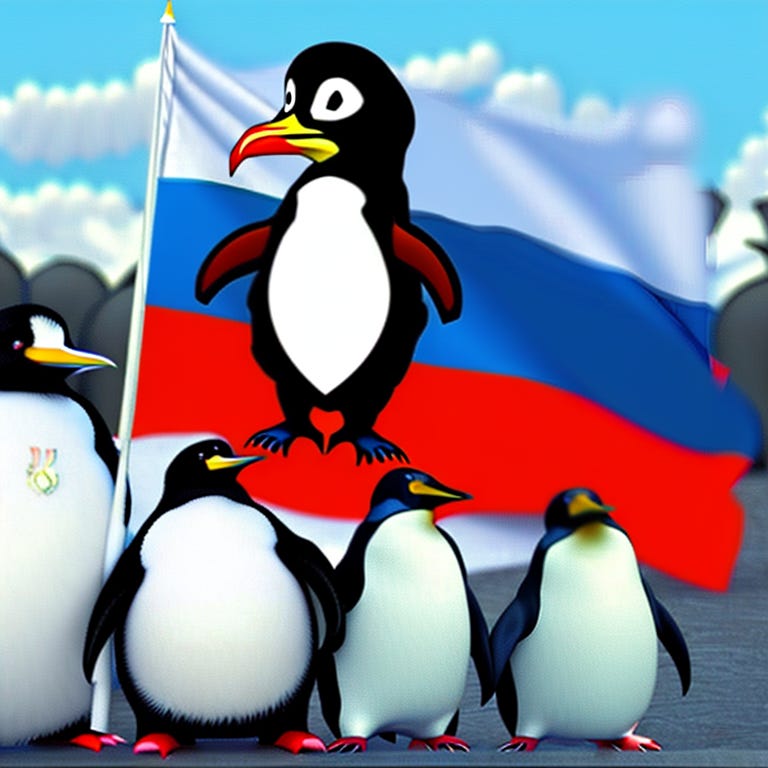Kernel Maintainer Rejects Russian Patch
Don't submit code to us if you are from a corporate in Siberia-land™.
The hottest discussion this week in the open source world was about the rejection of a submitted patch from a Russian software developer to the Linux kernel.
The kernel subsystem maintainer rejected the patch because the submitter was using an email address that belongs to a Russian company currently under sanctions by the US (called Baikal, which makes local Russian CPUs and other hardware). The maintainer told the software developer:
We don't feel comfortable accepting patches from or relating to hardware produced by your organization. Please withhold networking contributions until further notice.
It should be noted that the submitted patch, though, is not related to the hardware manufactured by Baikal; instead, it is just a patch that fixes a minor issue in a networking driver related to a US-based manufacturer.
But the kernel subsystem maintainer rejected it nonetheless, citing the submitter’s organization.
The Linux community was split on this news. Some people were supportive while others called it discrimination against a specific group of people. After all, not all Russians are supportive of the Ukraine invasion their country is currently doing, and it is not even strictly necessary that this Russian software developer specifically is supportive of that either (no information about that at all).
While it is true that the main reason this patch was rejected was not simply because the software developer is of Russian nationality, but works for a Russian company under US sanctions and submitted the patch using a work email address, this issue sets a dangerous precedent in the open source world, where contributions can be rejected for various criteria related to the person submitting it rather than just pure technical reasons and debates.
Theoretically, all Russian companies can be sanctioned by the US or other countries, so it may effectively lead to the prohibition of all Russian contributions in this project or that.
Some users are afraid this might start to spread to other areas and people in the future, where it could cause a lot of headaches for everyone involved. After all, you can’t distinguish “Russian code” from “Saudi-Arabian code” or from “Israeli code”… All of these countries - and the US itself, of course - committed atrocities more or less alike. And perhaps open source code should just remain away from these political issues for the good sake of everyone.
What is your opinion on this matter? Share your thoughts in the comments below.
Last Week Open Source News
We follow open source news from all over the Internet so you don’t have to.
NordVPN have released the source code of their Linux client under an open source license (GPL 3.0).
Dreamworks have open-sourced their MCRT renderer under the Apache-2.0 license. Could be useful for VFX artists.
Docker is going to delete “free tier organizations” from its registry. Affected users are advised to migrate to GitHub Registry instead.
PyTorch 2.0 was released. For those who don’t know, PyTorch is an open source machine learning framework that is currently the mainstream option for AI applications. It was mainly developed by Facebook. Version 2.0 includes CPU & GPU training optimizations, Accerlated Transofmrs and much more. All of this is while the 2.0 release is %100 backward compatible with previous releases, forming an extra point on why PyTorch is better than TensorFlow.
Firefox 111 was released with very minor changes.
Version 2.0 of Scrcpy was released. It is a software that allows you to mirror your android screen inside your Linux system, but version 2.0 now also added audio support, which means you can have a full android video and audio experience directly from your Linux system. We have reviewed it before on FOSS Post.
Interesting Stuff from the Web
These discussions and articles might be interesting for you, all related to either Linux or open source software:
Kali Linux now offers a new distribution called “Purple” that is aimed at definitive security. Perhaps we put our hands on it in the upcoming weeks.
Amazon Linux 2023 was released. Apparently, it isn’t based just on one parent distribution, but uses different components from Fedora 35, 36 and 37, as well as CentOS Stream 9. It could be useful for you if you have some servers on AWS (the distribution is optimized for AWS hardware).
Hope you liked our newsletter! Kindly don’t forget to support our efforts on Patreon for just one cup of coffee per month ($5).





I think development of technology, specially, open source technology, should not be related to political affairs, when is that the very reason we are developing that technology, to get rid of the governments involvement in the open web. I thought of open source projects as the building blocks of a virtual world where none of that stuff matters. A place where everyone is the same.
The United States has boycotted Cuba for many decades, and Venezuela now. They can sanction any country just because the have the power. Foreign policies of USA should not be a critirion for developing the Linux kernel, or other applications related to it. Acceptance of contributions should be bases on the technical aspect of it.